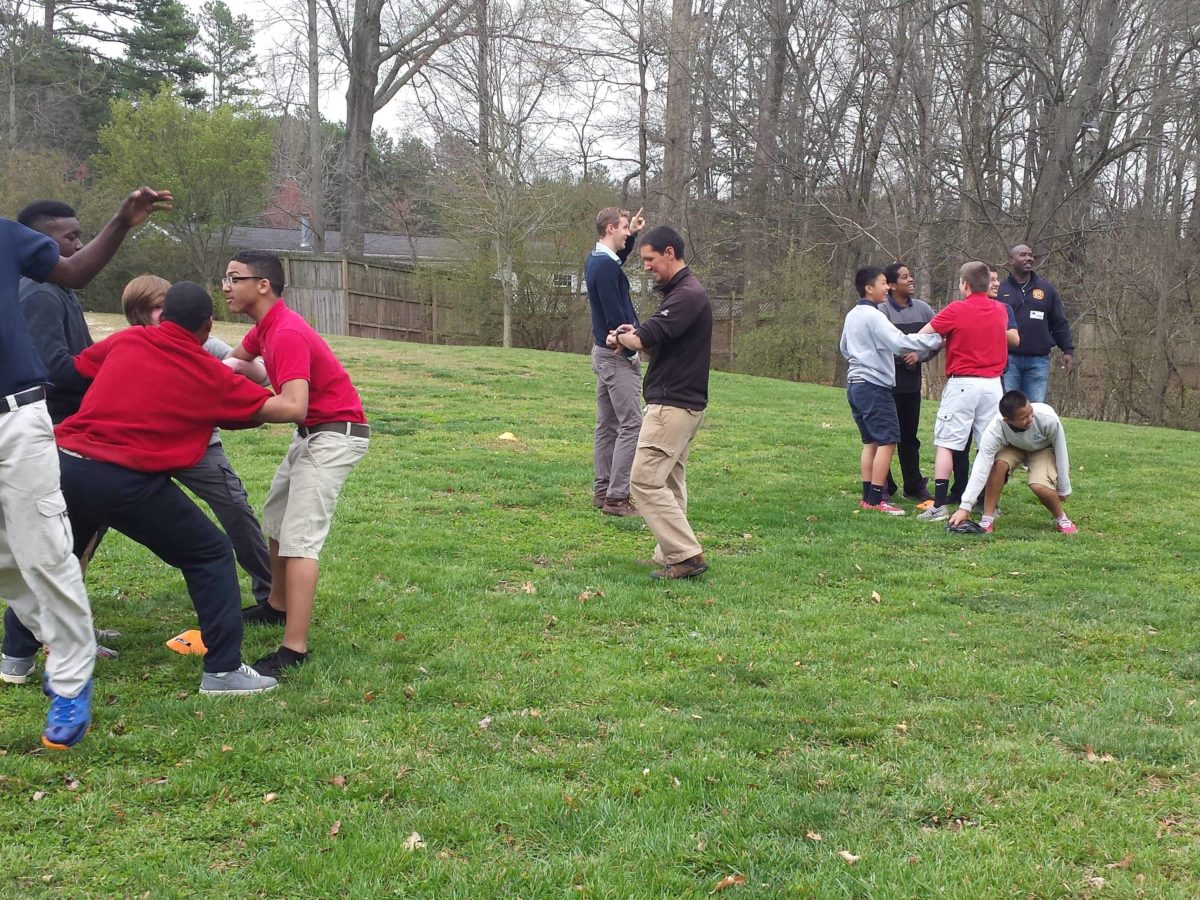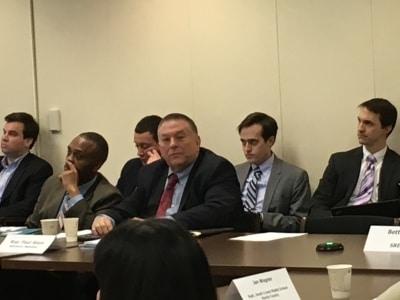

This is my first year out of graduate school. I landed a job as case manager at the Cabarrus Health Alliance in Kannapolis, North Carolina. They received funding for a three-year male youth violence prevention program that would be focused in two high schools and two middle schools. The program is titled Cabarrus Students Taking a Right Stand, or STARS. We work with approximately 15 to 30 young men at each school, the majority of whom are boys of color, in a large group setting focused on positive youth development. A quarter of these students are identified for case management services. In addition to the programming with the students, we offer professional development opportunities for staff.
It seems there are hundreds of new ideas, curriculums, and evidence-based programs that proclaim to be the next great thing in education.
The answer to all the big questions: “How do we…”
Keep our students in school?
Guarantee our staff feel supported?
Ensure that our test scores are high and our discipline referrals are low?
But as with any fad, be it the low-carb, no-fat, dairy-limited, fun-free diets we subject ourselves to, or that terrible fourth grade haircut that is forever memorialized on my mom’s fireplace, these often well-intentioned initiatives can lead to regrets, missed opportunities, or even the exact opposite effect of what we originally intended. At best, we can look back while cringing and laughing, but at worst, we may recognize that irreparable damage was done.
Changing the framework under which we think and operate isn’t a quick-fix move. It’s not sustainable to jump right in to “systems-level change” without careful research and thoughtful discussions from all sides of the spectrum. You need those administrators who run from classroom to classroom, trying to hear all sides of every story; you need the teachers to speak honestly about the daily successes and challenges they’re experiencing in their classrooms; you need the disciplinarian to share who they see cycling in and out of the lonely in-school suspension room; you need the parent to explain why they were unable or unwilling to attend a parent-teacher conference to talk about yet another discipline referral for their child; and finally, and I would argue most importantly, you need the students. The students are, or at least they should be, the reason we are here. We’re here because we want to see every kid have the opportunity to succeed in North Carolina. But far too many students are starting out life behind the eight ball – academically, emotionally, or socially. So what is next?
As the program began, the STARS staff and I realized we had drastically underestimated our students in many ways. The challenges that many of them experience are almost unbelievable and their resiliency despite these adversities is inspiring. There were many times I left case management sessions in tears, from sadness and frustration. But there were also times they shared stories of surmounting what to many would be impossible odds. Working as their case manager was one of the most challenging things I’ve experienced but I am grateful because it gave me a deep appreciation for the students and their families, along with the school staff. I transitioned into a new role within STARS, focusing the majority of my time on the systems-level change piece and trying to define what this would look like.
In September 2015, I attended the MAHEC Adverse Childhood Experiences (ACEs) Summit in Asheville, North Carolina. That’s where things began to fall into place for me. I was inspired by the work of Buncombe County Schools, along with several of the national models for Compassionate Schools and trauma-sensitive education systems. We attended the Paper Tigers screening and saw on screen the same issues with which we struggle. Immediately following the Summit, we returned home and got to work developing brief trainings on ACEs and trauma to deliver to school staff, to which over 300 people have attended thus far. We hosted a screening of Paper Tigers at a local theater and with an attendance rate of nearly 400.
Following each of these meetings, presentations, and the screening, the biggest question was “so what’s next?!” And that’s where we stand now. Reading everything we can get our hands on, attending statewide coalition meetings on trauma-sensitive schools, and connecting with those who are working on similar issues across the state and the country in an effort to work with our schools on defining and creating safe and supportive schools here in Cabarrus County.
Lack of time, interest, funding, and staff buy in – there are a so many reasons that this could fail. But there are literally thousands of reasons that failure is not an option. The students, their families, teachers, administrators, janitorial staff, cafeteria workers, bus drivers, and counselors – they are the reasons that assisting our schools in becoming trauma-informed is not an option, but a necessity. Conversations are being held and planning for future efforts is slowly coming together. I think and I hope that we are headed in the direction of ensuring our schools are a place of learning, support, and compassion for students and staff alike.




